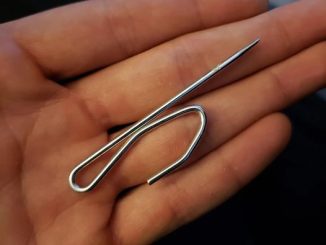A heartbreaking incident has unfolded in Santee, San Diego, where a baby girl lost her life after being left in the back of a hot car. This tragic event occurred just two months after her adoptive parents brought her home. Is hot car death common?
Discovery and Emergency Response Into The Hot Car Death – An Ongoing Investigation
Diana Sofia Aleman Roman, the infant victim, was found unresponsive in the SUV parked outside her family’s home around 12:20 AM on June 13. The child had been left in the vehicle for several hours in 63°F weather before a family member discovered her and immediately called 911.
Despite being rushed to Sharp Grossmont Hospital, Diana could not be saved. The San Diego County Sheriff’s Office is actively investigating the circumstances that led to Diana being forgotten in the car and determining who was responsible. As of now, no charges have been filed.
The Dangers of Hot Cars – a Tragic Hot Car Death
Studies highlight the rapid rise in temperature inside a parked car. On a 70°F day, the temperature inside a car can soar to 104°F within just half an hour. Reaching 115°F in an hour. The human body’s organs begin to shut down at 107°F, making such environments lethal, especially for children.
Adoption and Family Background – A Loving Family
Diana was welcomed into the home of Romer and Jayson De Los Santos on April 11, after they traveled to Arizona to meet her in the hospital. Heartwarming photos captured the couple cradling Diana and introducing her to their two-year-old son, who was also adopted. Romer expressed his grief after the hot car death, writing, “I haven’t slept in days,” next to one of the photos.
The De Los Santos family had been actively seeking to adopt a second child, sharing their adoption profile on social media in November. They expressed their desire to provide a loving home filled with cherished memories. Special moments such as beach outings, biking to the park, and raising foster kittens. Romer, a senior consultant at Jama Software, and Jayson, a stay-at-home dad, have been together for over 20 years. They married in 2008 during a brief period when same-sex marriage was legal in California. Their home is described as a “zoo,” housing numerous pets including cats, dogs, chickens, and parakeets.
Community Reaction

Neighbors described the De Los Santos family as kind and attentive parents often seen playing outside with their children. One neighbor said, “They seem like a nice family who wanted to give a couple of kids a good life. It’s just a shame it didn’t turn out that way.” It seems many suggested that the hot car death wasn’t intentional.
Medical Examination and Broader Context

The San Diego County Medical Examiner’s Office will determine the cause and manner of Diana’s death. Annually, around 37 children die from being left in hot cars across the U.S. Since 1998, California has witnessed at least 56 such fatalities, according to statistics from San Jose State University’s No Heat Stroke project.
Preventive Measures and Legal Implications & Expert Insights
Parents are urged never to leave their children alone in vehicles, even for short periods. Temperatures can rise dangerously fast, posing severe risks to children who cannot regulate their body temperatures as efficiently as adults. Which can effectively cause hot car death. California law imposes a $100 fine for leaving a child under six in a car under hazardous conditions. With potential charges ranging from neglect to manslaughter depending on the outcome.
Experts explain that it’s possible for any parent to forget a child in a car, especially when distracted or following routine habits. The increase in such cases since the 1990s is partly attributed to the recommendation of placing child car seats in the back, out of sight to protect them from airbags.
Recommendations for Prevention
To avoid such tragedies, No Heat Stroke suggests placing a soft toy in the front seat as a reminder of the child in the back or placing essential items next to the child’s seat. They also recommend keeping vehicles locked at all times and teaching children never to play in cars.
The loss of Diana Sofia Aleman Roman serves as a stark reminder of the dangers associated with leaving children unattended in vehicles and the importance of vigilant parenting practices. Hot-car tragedies can happen to anyone due to human memory lapses.
Here are key strategies to prevent these incidents:
Create Safeguards: Establish agreements with child-care providers to notify each other if a child is absent or late. Set phone reminders to ensure the child has been dropped off.
Secure Vehicles: Always keep vehicles locked and keys out of children’s reach.
Visual Reminders: Place the child’s items, such as a diaper bag or jacket, in the front seat as a reminder.
Back-Seat Checks: Keep essential items like your backpack or briefcase in the back seat to prompt a check before leaving the car.
Never Leave Children Unattended: Never leave a child alone in a vehicle, regardless of the outside temperature.
Technological Solutions & Expert Advice:
Invest in car seats or vehicles with integrated reminder technology, such as SensorSafe. Systems that default to “on” are most effective. Use education and technology together to prevent these tragedies. Real-life experiences, like that of Jennifer Stockburger, highlight the importance of these precautions. Combining awareness with practical strategies and technology can protect children from hot-car incidents.
If you see someone wearing these shoes, stop what you’re doing and look around
In the hustle and bustle of our daily lives, it’s easy to become ensnared in our own trials and tribulations, often forgetting that there are individuals facing challenges far greater than our own.
Every person we encounter is engaged in some form of struggle, whether overt or concealed. This underscores the importance of maintaining constant consideration and treating everyone with the utmost respect.
For me, this principle holds particular significance in interactions with individuals navigating life with disabilities. It’s not about bestowing special treatment or fostering pity; rather, it’s about recognizing the profound inspiration they embody and affording them the respect they deserve.
An essential aspect of demonstrating this respect is acquiring knowledge about the obstacles faced by individuals with various disabilities. Consider, for instance, the visually impaired…
The prospect of losing one’s sight is daunting, as our eyes serve as conduits through which we perceive and understand the world. Yet, there are countless individuals coping with severe visual impairment or complete blindness.

For those living with visual impairment, simple tasks become arduous challenges. Enter Tec-Innovation, an Australian company that has developed a groundbreaking solution: InnoMake shoes.
Reports indicate that these innovative shoes utilize advanced sensor technology to assist wearers in navigating obstacles they may not perceive visually. Equipped with built-in sensors, the InnoMake shoes emit vibrations or sounds upon detecting obstacles, akin to the warning systems in automobiles.
‘According to information shared on their YouTube channel, the shoes feature specialized slots for the sensors, which retain their charge for up to a week after a three-hour charging session. Moreover, they can be synchronized with a smartphone, allowing users to customize settings such as alert preferences and minimum detection distances.’According to information shared on their YouTube channel, the shoes feature specialized slots for the sensors, which retain their charge for up to a week after a three-hour charging session. Moreover, they can be synchronized with a smartphone, allowing users to customize settings such as alert preferences and minimum detection distances.



Leave a Reply